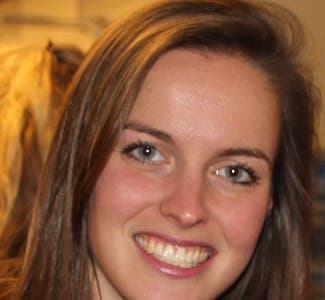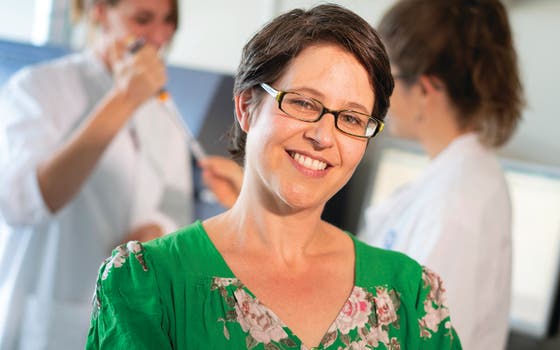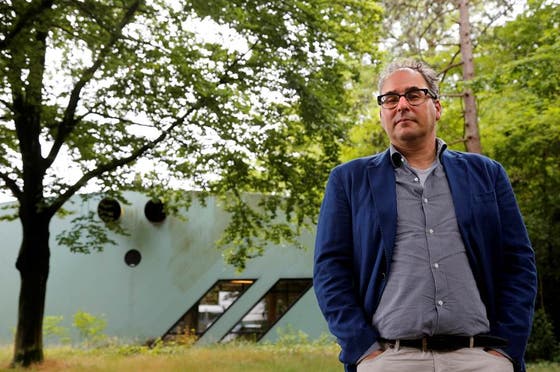Newsletter I&I nieuws
Patient participation in Infection & Immunity; impressions of an inspiring theme session

On March 30 an inspiring session was organized by the Strategic Program I&I, concerning matters of patient participation in our research. Prof. Dörte Hamann presided the afternoon, and after her welcome, Dr. Marianne Boes summarized the findings of the survey on the topic of patient participation. The survey had been sent out to researchers within I&I (PhD, staff, professors) two weeks before the session and revealed that many collaborative research initiatives already exist within I&I, especially in clinical research setting. The survey further exemplified the needs for novel and further patient participation initiatives within our program.
Read moreMedal of honor NVIC for Jozef Kesecioglu

Early February, Jozef Kesecioglu, professor of Intensive Care and intensivist at UMC Utrecht, delivered the honorary lecture of the Dutch Intensive Care Association and received the corresponding Medal of Honor. Jozef has been of significant importance for the Intensive Care Unit (ICU) of UMC Utrecht. He also plays an important role nationally and in Europe as president of the European Society of Intensive Care Medicine.
Read moreI&I investigators participate in Centre for Unusual Collaborations grant projects

Two teams with involvement of I&I investigators within the strategic alliance between TU/e, WUR, UU and UMC Utrecht have received an Unusual Collaborations Grants for projects set to address societal challenges.
Read moreDec 17: Impact of psychological mechanisms of sexual behavior on chlamydia transmission

Chlamydia is a sexually transmitted infection and can cause long-term complications, such as reduced fertility. That is why the prevention of chlamydia is important, for example by using condoms. Whether people use condoms depends on psychological characteristics, such as risk assessment. Mathematical models are often used to predict chlamydia spread. Psychological characteristics and changes in them over time are rarely added to these types of models.
Read moreDec 15: Value of immune monitoring after stem cell transplantation in children

Immune monitoring of children after hematopoietic stem cell therapy may provide useful information to improve efficacy of treatment and reduce the occurrence of complications. In addition, immune monitoring may in the future be used for a personalized treatment in children undergoing hematopoietic cell transplantation.
Read moreConnecting lab results for better care

Linking results from immunological tests with results from other laboratory specialties and clinical data in order to provide better advice for the doctor: that is the dot on the horizon for Dörte Hamann (Center for Translational Immunology). Since October she has held the new chair of ‘Integrated Immunological Diagnostics’. She will also work with patients to realize better remote diagnostics.
Read moreBetter recognition and treatment of chronic inflammatory diseases

Recognizing chronic inflammatory diseases before patients develop symptoms? It is still a long way off, but that is the ultimate goal of Femke van Wijk, who was appointed full professor of "Immunology of Tissues" as of 15 October 2020. “And then not only recognize it, but also treat it immediately with the right drug.”
Read moreNov 4: Mechanisms and evolution of colistin resistance in gram-negative bacteria

PhD research by Axel Janssen at UMC Utrecht has revealed new insights into the mechanisms and evolution of antimicrobial resistance, in particular of resistance of Gram-negative bacteria against colistin. There was a great variety in mutations that can lead to colistin resistance, but such mutations often occur in the same genes. These observations may be helpful to identify new proteins that can serve as targets for new antimicrobials.
Read moreOrgan effects of antiretroviral therapy in HIV

Treatment of HIV with combination antiretroviral therapy (cART) may have adverse effects on organs such as liver, bone and lungs. In his PhD thesis, Berend van Welzen investigated the effects of HIV itself as well as of various forms of cART and found out that modern cART modalities have brought significant advantages for HIV patients, including lower overall mortality (when co-infected with hepatitis B virus) and reduced risks of liver toxicity and perhaps of osteoporosis as well.
Read moreSep 28: Marc Bonten interviewed for new UMC Utrecht podcast series

Science journalist Jop de Vrieze interviewed Marc Bonten (as a pilot for a forthcoming UMC Utrecht podcast series) about COVID-19 and in particular the ongoing scientific studies at UMC Utrecht. They discuss – amongst others - the epidemiological aspects of COVID-19, how to prevent infection and clinical research (including prevention through vaccination and old/new treatment modalities).
Read more